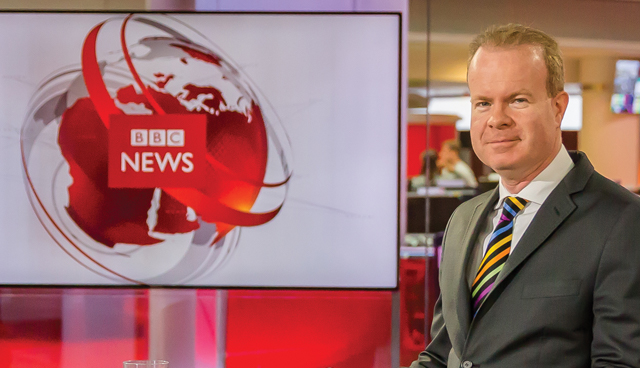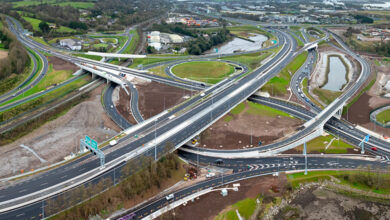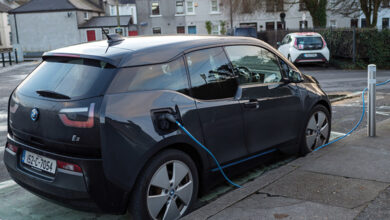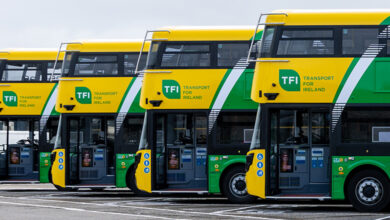Transport infrastructure and Covid-19: Never waste a crisis

The Covid-19 pandemic and associated economic crisis offers an opportunity to approach things differently in Ireland and this includes transport infrastructure. Dublin-born veteran broadcaster and presenter of the Newsroom Programme on the BBC World Service, Joe Lynam writes.
The former mayor of Chicago and White House Chief of Staff, Rahm Emanuel, was famed for his temper, his brains and for offering the phrase “never let a crisis go to waste”. He assumed his post alongside then President Barack Obama in the eye of the Great Recession in early 2009 as unemployment was soaring and GDP plunging. Sound familiar?
Brexit was already throwing up a major headache for Ireland but now with Covid-19, this ‘shit just got real’. Of course, Ireland is not the only country with a public health and economic crisis. The real question is how will it respond?
It could try to put Humpty Dumpty back together again in as many fields of life as possible by trying to restore everything to how it was nine months ago. That is the politically easy thing to do and is possibly the most likely outcome. But it could also stand back, with this new coalition and re-examine everything, particularly our infrastructure.
In February 2020, I wrote a piece for the Irish Times suggesting that Ireland copies the example set by Japan, which building its high-speed rail network, known as the Shinkansen, in the 1970s. In that piece, I suggested building a brand-new rail network which does not follow the path of the existing railway lines on the island of Ireland but rather one which goes through less well-known towns and townlands and by building new towns and cities around each stop.
Little did I know that there would be a grand coalition featuring the Green party within a few months and that Ireland would be facing an economic crisis as big if not bigger than the financial crisis of 2009/2010.
I also didn’t know that Michelle O’Neill, the deputy First Minister in the North, would also actively support the building of a high-speed line stretching from Belfast to Cork, just as I had.
Now is certainly the time to think big and to think long-term. Borrowing costs are effectively zero and are unlikely to rise in the next decade at least. We need to build homes for our citizens, and we must consider weaning ourselves off our dependency on Dublin as a source of all major employment.
One of the great benefits of lockdown has been the widespread adoption of ‘working from home’. If you’re lucky enough to have avoided Covid-19, have a job, a medium-sized house with a garden and a decent broadband signal, lockdown hasn’t been too bad for you. It’s also brought into sharp relief how easy it is to do things differently, when urgency requires. Why spend three hours of every working day commuting to a city centre office for at least one-third of your life when you don’t need to?
Instead you could live in rural Ireland and enjoy a superior family life in a cleaner and safer environment. But that does not mean that we shouldn’t build the necessary infrastructure to move people and goods around quicker and cheaper. After all, high speed rail is not just about commuting, it’s also about removing our dependency on cars and making the country more accessible. As the old CIE advert goes, ‘let the train take the strain’.
Of course, it’s not enough to simply build a fast railway line, the infrastructure should also contain whatever the next generation of high-speed broadband fibre may be, so that we can all have speedy video calls and upload fat files in microseconds from the garden shed. Energy efficient houses must be built, and shops and schools provided for burgeoning new towns. And before you say that the NIMBYs won’t allow any such construction, consider the way in which the Irish Government requisitioned private hospitals in a matter of hours during the peak of Covid-19. Consider how quickly our Naval Service and even Croke Park were pressed into action and how the economy was quasi nationalised at short notice, all in the national interest. It can be done where there’s a political will.
The longer we postpone decisions to think big and act fast, the less likely that anything like this will be built. And remember every other developed nation on earth will be thinking the same thing right now. ‘We gotta beat that competition.’





